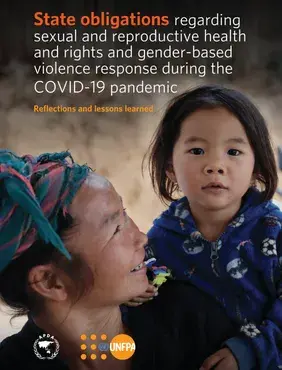Women and girls in the Asia-Pacific region have been disproportionately affected by the coronavirus disease 2019 (COVID-19) pandemic response, particularly with regard to their sexual and reproductive health and rights (SRHR) and access to gender-based violence (GBV) services. From 2020 to 2022, there was an increase in maternal mortality; an increase in unmet need for family planning and contraception; a reduction in access to human immunodeficiency virus (HIV) prevention methods, testing and treatment; and decreased access to GBV response services. The pandemic response compounded existing barriers to accessing SRHR and GBV services in the context of restrictions on freedom of movement and as health systems became overwhelmed. The effect was particularly profound for marginalized women and girls with multiple and intersecting forms of discrimination that interacted to exacerbate structural inequalities.
This research was commissioned to document state obligations regarding SRHR and GBV during the pandemic as part of our efforts to strengthen humanitarian preparedness and response going forward. The analysis focused on international normative guidance regarding the classification of essential services, challenges in accessing services and the continuity of service provision during the pandemic, and the strategies employed to adapt to the COVID-19 context. Human rights constitute a universal, normative and legally binding foundation to prevent, protect against and control public health threats, and a basis for equitable, accountable and effective public health and socioeconomic responses to COVID-19.5
This research has found that the failure to classify appropriate SRHR and GBV services as essential, in line with international human rights law, has compounded challenges to accessing such services during the pandemic.
It is hoped that the lessons learned from this pandemic will foster improved preparedness and response going forward.


